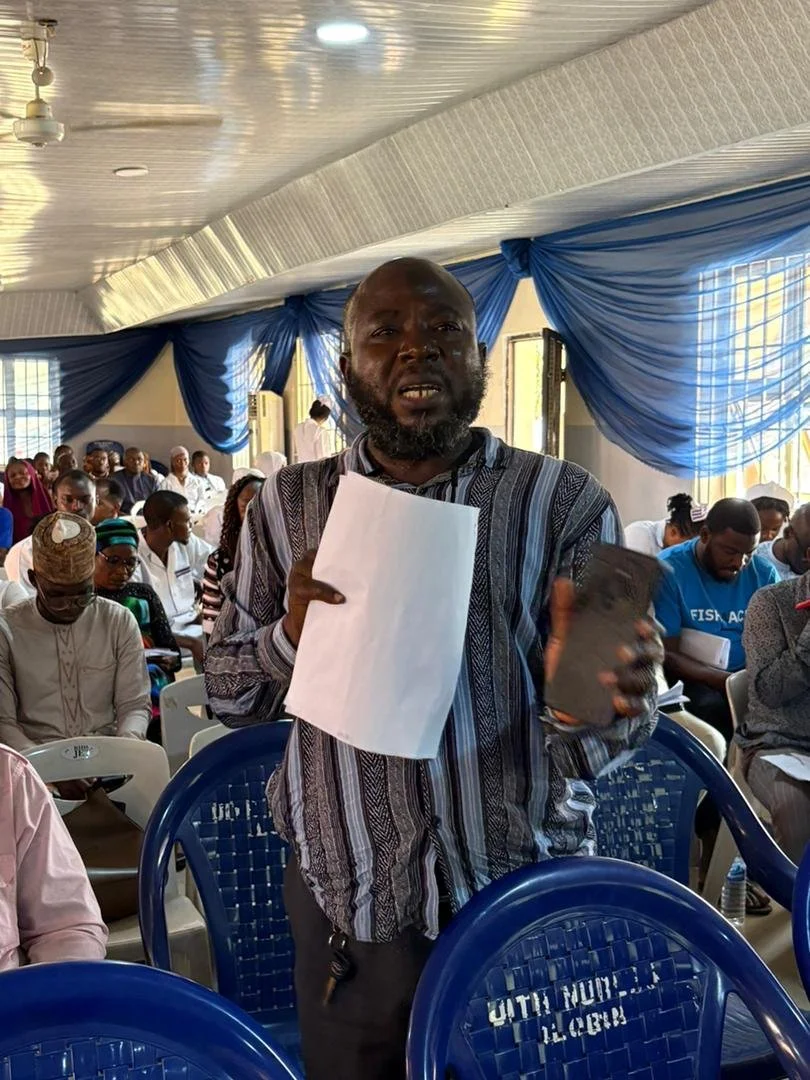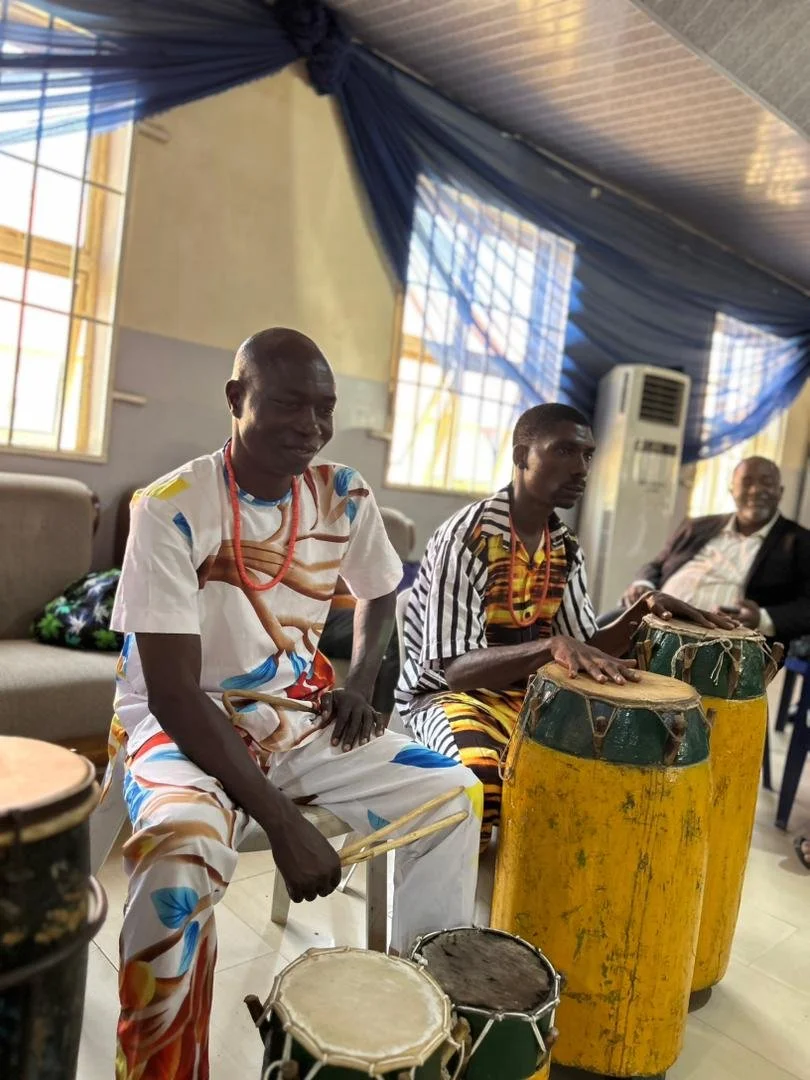“Act Now: Protect Our Present, Secure Our Future”: ComBac-Africa celebrates World AMR Awareness Week 2025









Antimicrobial resistance (AMR) occurs when bacteria evolve and no longer respond to medicines. As the WHO’s latest Global Antimicrobial Resistance and Use Surveillance System (GLASS) report warns, AMR is compromising the effectiveness of life-saving treatments and threatening the very foundations of modern medicine. Although it is a global health concern, AMR’s impact is not evenly distributed: multidrug-resistant gram-negative bacteria (MDR GNB) pose a particular threat in low- and middle-income countries, with Sub-Saharan Africa facing some of the world’s highest rates of AMR-related illness and death.
The ComBac-Africa project seeks to address precisely this issue. Bringing together partners across Africa and Europe, the consortium aims to combat MDR GNB infection by strengthen diagnostic and treatment capacity through a needs-adapted antimicrobial stewardship programme in Côte d’Ivoire, Guinea-Bissau, and Nigeria. Together, partners aim to not only develop new diagnostic tools and treatment algorithms to optimise patient care but also to ensure equitable and sustainable access to life-saving antibiotics well beyond the project’s duration.
ComBac-Africa embraces global campaign to fight AMR
To raise awareness of the growing threat that AMR poses to public health, the World Health Organization (WHO) observes World Antimicrobial Resistance Awareness Week (WAAW) each year from 18-24 November. This year’s theme, “Act Now: Protect Our Present, Secure Our Future,” reminds us of the urgent need for collective action to combat AMR before it reverses decades of medical progress.
Embracing this call to action, the ComBac-Africa team at the Centre for Malaria and other Tropical Disease Care (CEMTROD) – University of Ilorin Teaching Hospital (UITH) hosted a symposium on 18 November at UITH. Organised in collaboration with the university’s Antimicrobial Stewardship Committee, the event brought together more than 260 in-person and 30 online participants, including university leaders, researchers and students, Kwara State representatives, healthcare workers, poultry farmers, fish farmers, representatives of Patent Medicine and Pharmaceutical Store Associations, as well as community members – all eager to learn about the dangers of AMR and how to prevent its spread.
The symposium opened with a warm welcome from Prof A. D. Yusuf (UITH), followed by an introduction to the ComBac-Africa project by consortium member Dr Bashirat A. Olanipekun (Principal Investigator, WP3 Lead).
The meeting proceeded with a keynote address by ComBac-Africa member Prof Abayomi Fadeyi. In his presentation on “The Human Health Perspective on Antimicrobial Resistance,” he explained how antimicrobial resistance emerges and how our everyday habits can accelerate its spread. Prof Fadeyi stressed that the misuse and overuse of antibiotics, both in healthcare settings and in the community, remain the leading causes of rising AMR. If these trends continue, illnesses and deaths linked to drug-resistant infections are expected to sharply increase in coming decades, with Sub-Saharan Africa projected to bear a particularly heavy burden of up to 4 million deaths annually by 2050. The way forward, he concluded, is to invest in research and innovation, and to educate both healthcare workers and the public on the safe and responsible use of antibiotics.
Attendees were then treated to a short educational drama – “Action Begets Reaction: Right Drugs for the Right Bugs” – performed by the Kwara State Council for Art and Culture. The performance reinforced Prof Fadeyi’s message that using antibiotics responsibly is essential to protecting public health.
Following the performance, Dr Ismail Ayoade Odetokun (Veterinary Public Health and Preventive Medicine, VTH) delivered a presentation on “Livestock and the Environmental Perspectives on Antimicrobial Resistance.” He highlighted the importance of a One Health approach in the fight against AMR, which recognises that connection between the health of humans, animals, and the environment. Dr Odetokun explained how the misuse of antibiotics in livestock contributes to the global spread of AMR, noting that resistant bacteria that develop in animals can reach humans through the food chain. Like Prof Fadeyi, he urged for the responsible use of antibiotics in agriculture and reminded the audience that they are not the only tool available to control infectious diseases in livestock. Preventing disease spread through measures such as vaccination, as well as accurate diagnosis and the precise treatment of infections, can reduce the need for broadly-applied and overused antibiotics and ultimately help curb resistance.
The symposium concluded with a lively Q&A session, giving attendees the opportunity to engage directly with our experts and explore further why a One Health approach to the growing threat of AMR offers our best chance to safeguard the health of current and future generations.
Reflecting on the event, Dr Olanipekun reminds us that while AMR invariably poses a global threat, “challenges like these also present us with unique opportunities: Through international collaborations like the ComBac-Africa project that champion research, technological innovation, and equitable access to antibiotics, we have the power to build a healthier, safer future for all.”
You can watch a short video recapping the event below:
This video was produced by ComBac-Africa’s team at CEMTROD-UITH.




